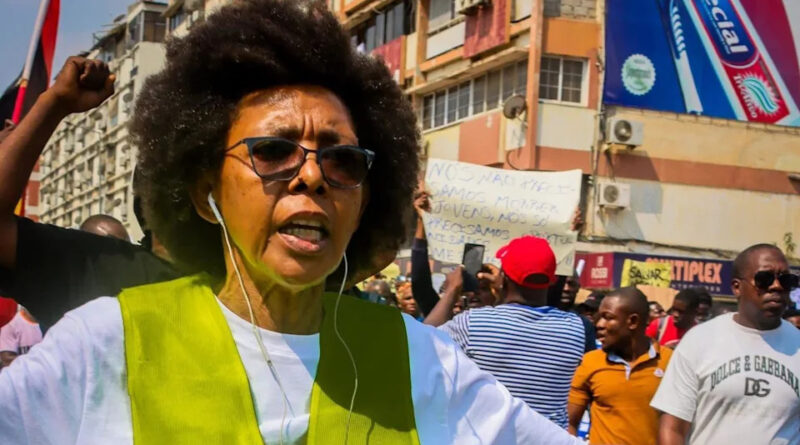Dozens of arrests during Angola fuel protests
What began as a three-day strike by taxi drivers in Luanda against rising petrol prices has escalated into one of the most widespread and disruptive waves of protest Angola has seen in recent years.
Thousands of people joined demonstrations in the Angolan capital on Monday that saw roads blocked, shops looted and clashes between demonstrators and police.
“The fuel price issue is just the last straw that has reignited widespread public discontent… People are fed up. Hunger is rife, and the poor are becoming miserable,” a prominent local activist, Laura Macedo, told the BBC.
Police have arrested more than 100 people and condemned “acts of urban terror” including the destruction of 20 buses.
One local newspaper said least three people had been killed in the protests, including a police officer, but there has been no official confirmation of any deaths.
The strike was called by taxi operators in response to the government’s decision to raise the price of diesel by over 33%, a measure introduced in early July as part of plans to remove fuel subsidies in the oil-rich nation.
Not only has this resulted in higher fares for urban Angolans who rely on the taxis, but it has also driven up the price of staple foods and other basics – as suppliers who transport those goods by road are passing on their additional costs to consumers.
But President João Lourenço has dismissed such concerns, saying that protesters are using petrol prices as a pretext to undermine the government.
“Even after the increase, the price of diesel in Angola remains around 40 US cents [per litre], and there are not many countries in the world with prices this low,” he told CNN Portugal in a recent interview.
The average monthly wage in Angola is just 70,000 kwanzas ($75; £56), and a promise by the presidency to increase this to 100,000 kwanzas has not materialised.
As frustrations spilled over on Monday, groups of protesters took to the streets in various parts of Luanda, chanting against fuel price increases, nearly five decades of rule by the governing MPLA party and expressing their frustration with the country’s current state of affairs.

Laura Macedo, seen here at a smaller fuel protest earlier this month, says Angolans are fed up [Luamba Muinga]
State-run media in Angola came under heavy criticism on social media for continuing with its regular programming and failing to cover the demonstrations.
By Monday evening, the MPLA warned young people not to join the protests and said that these “acts of vandalism are deliberately intended to tarnish and hinder the joyful celebration” of Angola’s 50th anniversary of independence.
Local authorities in Luanda on Monday also issued a public statement expressing “deep concern” over the events, which they described as “disturbances and acts of vandalism associated with the forced halting of taxi services”.
According to the statement, the strike originally announced by taxi organisations had been called off following negotiations with authorities.
However, it said, “groups of unidentified individuals, without any legitimate representation of the taxi sector, resumed the call for strike actions, promoting intimidation and violence, including attacks on vehicles circulating on public roads, even those not providing taxi services”.
Much of these protests have been spontaneous in nature, and it is not yet clear whether they will continue in coming days.
As of Tuesday morning, major shops, banks and other businesses closed their doors. Some civil servants have returned to work, but many people who work for private companies have stayed at home on the advice of their employers.

Some shops in the capital were raided [AFP via Getty Images]
More BBC stories on Angola:

[Getty Images/BBC]
Go to BBCAfrica.com for more news from the African continent.
Follow us on Twitter @BBCAfrica, on Facebook at BBC Africa or on Instagram at bbcafrica
BBC Africa podcasts
